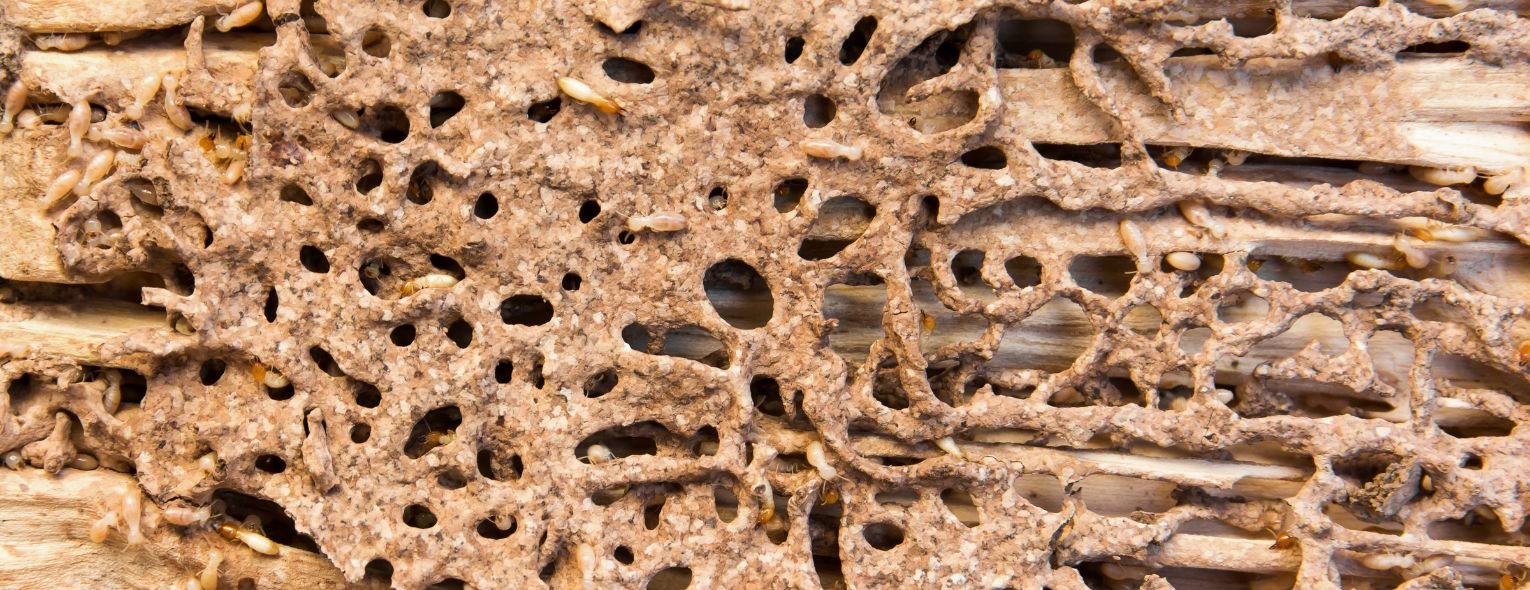Why Termite Control is Crucial Year-Round in Arizona
Termites are a persistent threat to Arizona homeowners. They remain active throughout the year, including the winter months. The state's mild winters do little to deter these pests, making year-round termite control essential.
Termite Activity During Arizona Winters
Unlike in colder regions, where termite activity may decrease during winter, Arizona's warmer climate allows termites to stay active year-round. Subterranean termites, the most common type in Arizona, live in underground colonies and can continue to forage and cause damage regardless of the season. During cooler periods, they may dig deeper to avoid surface cold, but their destructive activities persist. Termites that do not live underground may also cause Arizona homeowners problems.
Common Termite Species in Arizona
Arizona's arid climate is home to several species of termites, each with unique behaviors and characteristics. Understanding the types of termites that threaten your property can help you identify and prevent infestations.
Arid-land Subterranean Termites: Arid-land subterranean termites are one of the most widespread termite species in Arizona. They are found in lower elevation cities like Phoenix, Tucson, and Yuma and typically swarm between January and March, depending on the weather.
Desert Subterranean Termites: This species is particularly well-adapted to Arizona’s dry conditions and is known for its ability to survive with minimal moisture. Their small size allows them to penetrate even the tiniest cracks in concrete and brick, giving them easy access to homes and buildings. Swarming activity typically occurs in in the late afternoon or early evening in July, August and September, but these termites remain active throughout the year.
Western Drywood Termites: Unlike subterranean termites, Western drywood termites do not need soil contact to survive. Instead, they infest dry, undecayed wood such as attics, furniture, and structural timbers inside homes.
Desert Dampwood Termites: Although less common in urban areas, desert dampwood termites are found in Arizona’s riparian zones, such as areas near lakes, rivers, or irrigation systems. They prefer moist, decaying wood, including fallen logs and tree stumps, but can sometimes invade homes with plumbing leaks or poor drainage.
Knowing which termite species are prevalent in Arizona helps homeowners better recognize potential threats and take appropriate preventive measures. If you suspect any signs of termite activity, Varsity Pest and Termite Control can provide expert identification, inspections, and customized treatment plans to protect your home year-round.
Signs of Termite Infestation
Early detection is crucial in preventing extensive termite damage. Homeowners should be vigilant for the following signs:
Mud Tubes: Subterranean termites construct mud tubes to travel between their colonies and food sources. These tubes are often found on walls, foundations, or in crawl spaces.
Wood Damage: Termites consume wood from the inside out, leaving a thin veneer that may blister or peel. Hollow-sounding wood when tapped can also indicate an infestation.
Frass: Drywood termites produce tiny, pellet-shaped droppings known as frass. These light brown or dark-colored specks often accumulate near wooden furniture, baseboards, or attic spaces.
Swarmers: Winged termites, or swarmers, emerge to mate and start new colonies. Finding discarded wings near windowsills or doors is a common sign of their presence.
Tight-Fitting Doors and Windows: When termites infest wooden structures, they produce moisture as they break down the wood. This excess moisture can cause doors and windows to warp, making them difficult to open or close.
If you recognize any of these warning signs of termite activity, don’t wait. Termites can cause thousands of dollars in structural damage in a short amount of time. Schedule a professional termite inspection in Mesa, AZ, or Phoenix, AZ with Varsity Pest and Termite Control to confirm whether termites are present.
Preventative Measures
To protect your home from termite infestations, consider the following preventive strategies:
Regular Inspections: Schedule annual termite inspections with a licensed pest control professional to detect early signs of activity.
Moisture Control: Termites are attracted to moisture. Ensure proper drainage around your home's foundation, fix leaky faucets, and keep gutters clean to reduce moisture buildup.
Eliminate Wood-to-Soil Contact: Avoid direct contact between soil and wooden parts of your home. Use concrete or metal barriers to separate wood from the ground.
Remove Wood Debris: Keep firewood, lumber, and other wood debris away from your home's foundation to reduce termite attractants.
The Cost of Ignoring Termite Control
Delaying termite inspections or treatments can lead to severe structural damage and costly repairs. Since termites often work unseen, homeowners may not notice an infestation until significant destruction has occurred. This includes structural integrity issues. Termites weaken wooden support beams, flooring, and even drywall, compromising your home's safety.
The average cost of termite damage repair in Arizona can range in the thousands or more, depending on the extent of the infestation. Additionally, homes with a history of termite damage may struggle to pass inspections, reducing their market value.
Investing in year-round termite control is far more affordable than dealing with unexpected repairs. Routine termite inspections in Mesa, AZ, and Phoenix, AZ can save you thousands in potential damages and ensure your home remains protected.
Professional Termite Control Services
Given the persistent threat of termites in Arizona, partnering with a professional pest control service is vital. At Varsity Pest and Termite Control, we offer comprehensive termite inspection and treatment services tailored to the unique challenges of Arizona's climate. Our experienced technicians utilize the latest techniques and treatments to safeguard your home against termite damage.
For a thorough termite inspection or to learn more about our preventive treatments, contact Varsity Pest and Termite Control today.

